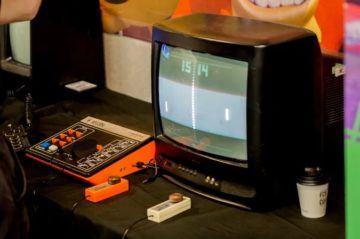K. Holt in Engadget:
 Researchers who grew a brain cell culture in a lab claim that they taught the cells to play a version of Pong. Scientists from a biotech startup called Cortical Labs say it’s the first demonstrated example of a so-called “mini-brain” being taught to carry out goal-directed tasks. ”It is able to take in information from an external source, process it and then respond to it in real time,” Dr. Brett Kagan, lead author of a paper on the research that was published in Neuron, told the BBC.
Researchers who grew a brain cell culture in a lab claim that they taught the cells to play a version of Pong. Scientists from a biotech startup called Cortical Labs say it’s the first demonstrated example of a so-called “mini-brain” being taught to carry out goal-directed tasks. ”It is able to take in information from an external source, process it and then respond to it in real time,” Dr. Brett Kagan, lead author of a paper on the research that was published in Neuron, told the BBC.
The culture of 800,000 brain cells is known as DishBrain. The scientists placed mouse cells (derived from embryonic brains) and human cells taken from stem cells on top of an electrode array that was hooked up to Pong, as The Age notes. Electrical pulses sent to the neurons indicated the position of the ball in the game. The array then moved the paddle up and down based on signals from the neurons. DishBrain received a strong and consistent feedback signal (a form of stimulus) when the paddle hit the ball and a short, random pulse when it missed.
More here.
